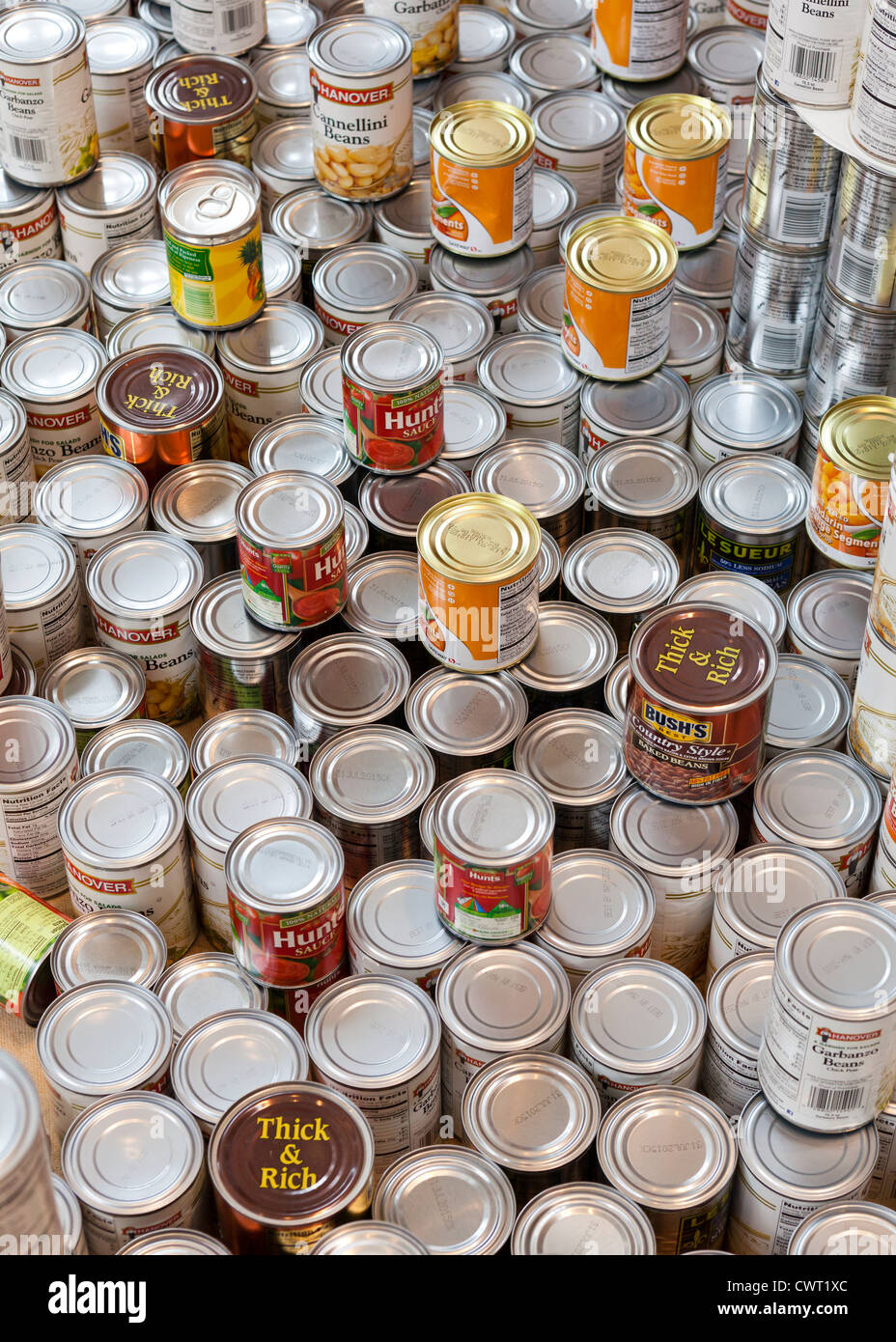
Ah, coffee! For billions across the globe, it’s more than just a drink; it’s a cherished daily ritual, a moment of solace, or the invigorating kickstart needed to tackle the day. Since its inception in Ethiopia around the 9th century, green coffee beans have embarked on an incredible journey, evolving into the diverse and beloved beverage we know today. The aroma, the flavor, the comforting warmth — for many, everything about their coffee needs to be absolutely pitch-perfect.
Indeed, coffee can be a fantastic part of a healthy lifestyle. Experts from John Hopkins Medicine note that individuals who drink coffee could potentially live longer, process sugar more effectively, and may even face a lower risk of developing heart failure or Parkinson’s disease. Kelly Gray, a nutrition expert, further highlights that “drinking caffeine improves your physical performance, as it can help you feel more alert and on the ball – ready to take on the day ahead of you.” She adds that two to five cups of ‘clean’ coffee daily can be great for your health, even potentially lowering the risk of type 2 diabetes.
However, and this is where our story takes a crucial turn, not all coffee creations are brewed equally when it comes to your health. While a simple Americano or black coffee might offer those fantastic benefits, the landscape of modern coffee culture is teeming with indulgent, high-calorie, sugar-infused concoctions that, despite their delicious appeal, can quietly wreak havoc on your well-being. The American Heart Association advises sticking to no more than 13 grams of saturated fat and 25 grams of sugar daily, yet you’ll soon discover just how easily some of these ‘caffeine boosts’ can blow past those limits in a single cup. Let’s peel back the layers and uncover 14 popular coffee orders that might just be proving some caffeine boosts aren’t healthy after all.

1. **Dunkin’ Pumpkin Swirl Frozen Coffee**When the seasons change, so do our coffee cravings, and for many, that means embracing the pumpkin spice craze with open arms. Dunkin’s Pumpkin Swirl Frozen Coffee, a once overt but now somewhat discreet option, might seem like the perfect autumn treat. However, behind its festive charm lies a nutritional profile that’s nothing short of alarming, making it one of the most significant offenders on our list.
Prepare yourself for this revelation: a 32-ounce large version of this drink packs a staggering 930 calories. The medium 16-ounce isn’t far behind at 860 calories. But the real shocker is its sugar content—a mind-boggling 185 grams in the large size. To put that into perspective, that’s over seven times the American Heart Association’s daily recommended sugar intake, or as one outlet starkly puts it, the equivalent of consuming 14 glazed donuts in a single beverage. This is far from “healthy” by any definition.
Such extreme levels of sugar and calories can lead to a significant excess energy intake, a primary contributor to weight gain and obesity. As dietitians like Michelle Rauch, MSc RDN, warn, “frequent consumption of sugar laden beverages is associated with weight gain, obesity, type 2 diabetes, and other issues including, but not limited to cavities and tooth decay.” This drink, in particular, epitomizes the “injurious” and “bad” nature of an unhealthy food choice, as described by Merriam-Webster. It’s a definite red flag for anyone mindful of their health.
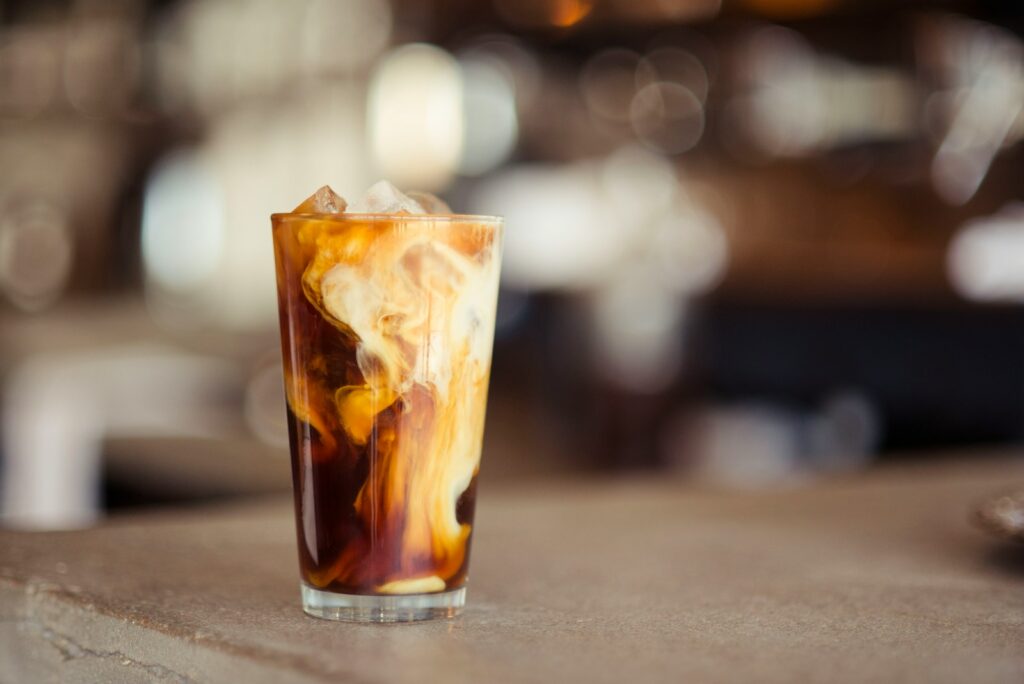
2. **Dunkin’ Caramel Creme Frozen Coffee**Not to be outdone by its pumpkin-flavored counterpart, Dunkin’s Caramel Creme Frozen Coffee stands as another formidable contender in the race for the unhealthiest coffee order. This frozen delight, beloved for its sweet, caramel-infused richness, is a perfect example of how quickly a seemingly innocent coffee break can transform into a substantial caloric and sugary indulgence.
Let’s get straight to the numbers for a 16-ounce medium size: a colossal 860 calories. But the calorie count is just the beginning. This beverage also delivers 30 grams of total fat, with a whopping 17 grams of saturated fat. That’s well over an entire day’s worth of the American Heart Association’s recommended limit for saturated fat in a single serving. And the sugar? An astounding 132 grams, which is five times the AHA’s daily recommendation, turning your coffee into a veritable sugar factory.
Such high levels of saturated fat are particularly concerning, as they have been “shown to increase risk of high cholesterol and heart disease,” according to nutritional experts reviewing iced mochas. Violeta Morris, MS, RDN, further notes that these drinks are “high in added sugars, empty calories, and carbohydrates that offer little nutritional value.” Choosing this drink regularly means inviting an “unhealthy” relationship with your daily caffeine, one that is demonstrably “harmful” and “injurious” to your overall physical well-being.
Read more about: Remember These? A BuzzFeed Blast from the Past: 15 Retro School Snacks We Miss So Hard!

3. **Starbucks Peppermint White Chocolate Mocha Frappuccino**Frappuccinos have carved out a special place in the hearts of many coffee drinkers, synonymous with indulgence and a delightful escape from the everyday. However, as delicious as they are, these blended beverages aren’t exactly celebrated for their health benefits. Starbucks’ Peppermint White Chocolate Mocha Frappuccino, a seasonal favorite, is a prime example of how these treats can quickly derail your dietary intentions.
A 16-ounce grande size of this popular holiday drink packs a hefty punch with 420 calories. It also contains 17 grams of total fat, with 11 grams of that being saturated fat. This amount already nudges close to, if not slightly over, the AHA’s daily limit for saturated fat. What truly pushes it into the ‘unhealthy’ category, though, is its sugar content: an astounding 73 grams, nearly triple the daily recommendation from the American Heart Association. It’s a sweet, minty, and undeniably high-risk choice.
The implications of regularly consuming drinks with such elevated sugar and saturated fat levels are clear. Excessive sugar intake contributes significantly to issues like weight gain, obesity, and an increased risk of type 2 diabetes, as noted by dietitians. The high fat content, particularly saturated fat, can also contribute to cardiovascular concerns. While a festive treat might be okay occasionally, making this a regular habit could lead to long-term health problems, clearly embodying the “unwholesome” and “bad” aspects of an unhealthy diet.
Read more about: Seriously, Where Did They Go? 14 Beloved Ice Cream Flavors That Vanished From Our Freezers!

4. **McDonald’s Frappe Mocha**Even global fast-food giants like McDonald’s have their own versions of indulgent coffee beverages, and the McCafé Frappe Mocha is a significant contender on our list of unhealthy coffee orders. While McDonald’s passionate fans might swear by their McCafé offerings, the nutritional facts of this particular blended drink suggest it’s best enjoyed with extreme moderation, if at all.
A 16-ounce version of the McDonald’s Frappe Mocha is loaded with a substantial 560 calories. It also contains 24 grams of total fat, including 15 grams of saturated fat, which means you’re consuming more than an entire day’s worth of saturated fat in just one drink. To top it all off, it delivers a staggering 70 grams of sugar, again, nearly triple what the American Heart Association advises for daily intake. This is certainly not a light pick-me-up.
While McDonald’s offers a wide range of coffee flavors, the standard of taste and quality can vary. More importantly, the nutritional profile of this Frappe Mocha consistently ranks it as a major contributor to excess calorie, fat, and sugar intake. Consuming such a drink frequently can contribute to the “unhealthy habits” that nutrition experts warn against, increasing the risk of weight gain and metabolic issues. It’s a vivid illustration of how convenience can often mask significant dietary pitfalls.
Read more about: McDonald’s Snack Wrap Comeback Fuels Sales Surge, Triggers Temporary Ingredient Shortages Nationwide

5. **Tim Horton’s Oreo Iced Capp**Tim Horton’s is a beloved institution, particularly in Canada, known for its consistent coffee and comforting treats. However, their Oreo Iced Capp takes an iconic cookie and blends it into a beverage that, despite its delicious appeal, is a nutritional powerhouse of sugar and fat. This drink illustrates how a favorite dessert can be transformed into an equally, if not more, concentrated unhealthy liquid form.
A 16-ounce version of this creamy, chocolatey concoction is brimming with 444 calories. Digging deeper into its nutritional information reveals 28 grams of total fat, with a hefty 18 grams being saturated fat. This amount alone far surpasses the American Heart Association’s daily recommendation for saturated fat. Furthermore, it contains 44 grams of carbohydrates and a significant 39 grams of sugar. These figures collectively highlight a beverage that is heavy on the indulgence and light on the health benefits.
The high saturated fat content is particularly concerning, as excessive intake is directly linked to an increased risk of high cholesterol and heart disease. When compared to the AHA’s recommendations for daily saturated fat and sugar, this single drink delivers quantities well beyond what is advised. It clearly falls under the definition of something “not conducive to health” and potentially “injurious,” encouraging habits that are anything but healthy.
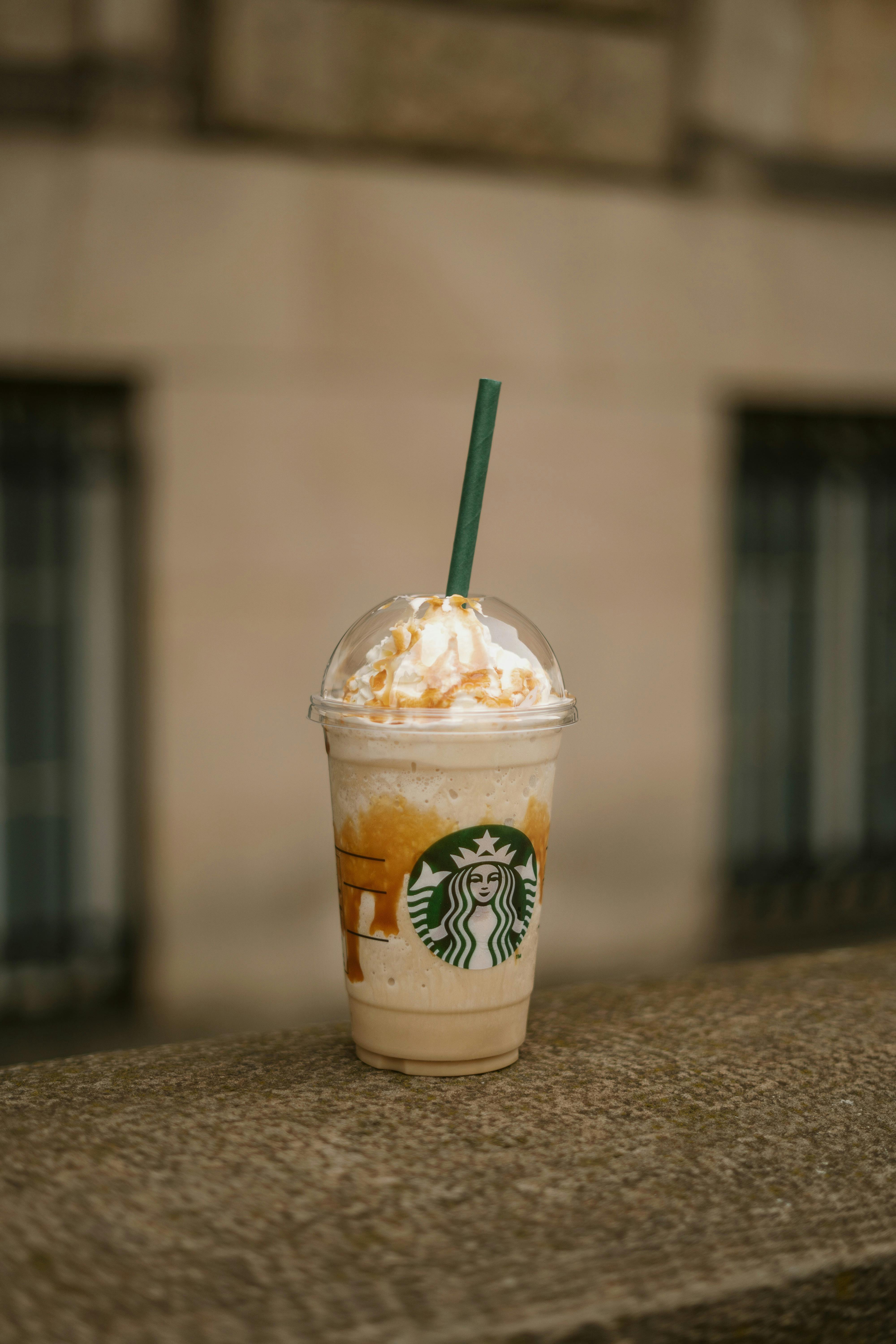
6. **Starbucks Caramel Ribbon Crunch Frappuccino**Starbucks is a master of creating enticing, often elaborate, coffee beverages that become instant sensations. The Caramel Ribbon Crunch Frappuccino is no exception, appealing to those who crave a sweet, crunchy, and refreshing pick-me-up. However, like many of its blended brethren, this particular Frappuccino carries a substantial caloric and sugar load that places it firmly in the ‘unhealthy’ category.
A grande-sized Caramel Ribbon Crunch Frappuccino comes in at a considerable 470 calories. It contains 22 grams of total fat, with 14 grams of saturated fat, which means it exceeds the daily saturated fat recommendation by the American Heart Association. And, predictably, the sugar content is sky-high at 60 grams, more than double the AHA’s suggested daily limit. While perhaps “slightly better” than some of the more extreme Dunkin’ offerings in terms of raw numbers, its impact on daily intake is still profound.
This drink is a classic example of how flavor and texture can mask a high density of undesirable nutrients. Regularly opting for beverages like this can lead to an accumulation of excess calories, saturated fats, and sugars, contributing to potential health issues such as weight gain and increased risk of chronic diseases. It serves as a stark reminder that even a beloved coffee treat can quickly become an “unwholesome” dietary choice if consumed frequently.
Read more about: Seriously, Where Did They Go? 14 Beloved Ice Cream Flavors That Vanished From Our Freezers!
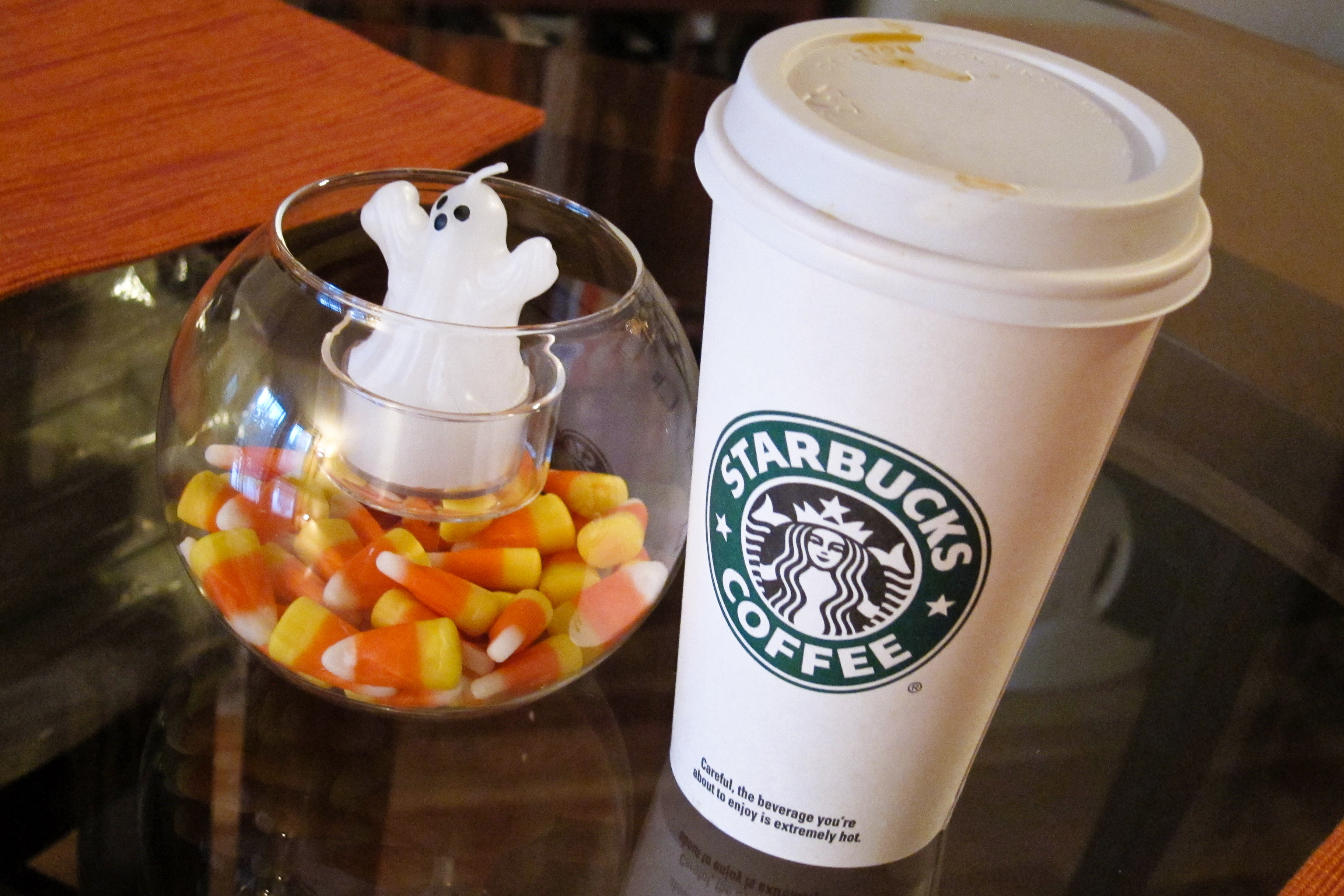
7. **Pumpkin Spice Latte (General)**Beyond specific chain variations, the Pumpkin Spice Latte (PSL) as a category has become a cultural phenomenon, eagerly anticipated each autumn. While the previous Dunkin’ Pumpkin Swirl Frozen Coffee was an extreme example, the general Pumpkin Spice Latte, as highlighted by nutritionist Kelly Gray, is still a significant concern for health-conscious coffee lovers. Its seasonal charm often blinds us to its underlying nutritional truth.
Kelly Gray definitively states that the “pumpkin spice latte is the worst coffee for you health-wise.” She attributes this to its “highest fat content of any other coffee combination, as well as the highest sugar levels.” A medium-sized PSL can easily contain around 350 calories, alongside its considerable fat and sugar contributions. This makes it a recurring item on lists of less healthy coffee choices across the board, regardless of the specific vendor.
The allure of the PSL often comes from the added syrups, whipped cream, and sometimes even a drizzle of caramel or spice toppings, all of which contribute to its elevated calorie, fat, and sugar profile. These additions transform a simple coffee into a dessert masquerading as a beverage. Experts advise caution, suggesting these are fine for an “occasion,” but should be consumed “less frequently” due to their energy density and sugar load. It’s a reminder that even widely loved and festive drinks can embody an “unhealthy” impact if they become a regular part of our routine.
Okay, so we’ve just navigated a treacherous landscape of coffee shop creations that could seriously derail your daily health targets. But hold onto your reusable cups, because our journey into the world of not-so-healthy caffeine boosts isn’t over yet! If you thought the café options were wild, wait until you see what’s lurking in the refrigerated aisles of your local grocery store, or how some seemingly innocent ‘healthy’ choices can be sugar traps. Let’s keep peeling back those layers and uncover seven more high-sugar, high-fat specialty drinks, including some popular grocery store offenders and general categories, that might just be proving some caffeine boosts aren’t healthy after all, and delve into their long-term health implications.

8. **Java Monster 300 French Vanilla Coffee**Kicking off our tour of grocery store offenders, we have the Java Monster 300 French Vanilla Coffee. It promises to deliver a high-performance energy kick, and with its notable caffeine content, it certainly might wake you up. However, its nutritional profile suggests it’s more of a sweet indulgence masquerading as a morning pick-me-up.
Packing 200 calories and 32 grams of sugar per can, this drink far exceeds the American Heart Association’s daily recommendation for sugar in a single serving. Dietitian Bess Berger, RDN, doesn’t pull any punches, stating, “Java Monster 300 is basically a milkshake disguised as coffee.” She adds that “with 32g of added sugar, it has more sugar than some candy bars.”
Beyond the sugar, this beverage also contains 3.5 grams of fat, with 2.5 grams of that being saturated fat, and a surprising 260 milligrams of sodium. As Berger aptly puts it, you’re “really getting a frothy mix of sugar, saturated fat, and sodium.” These elements collectively contribute to a drink that, while energizing, is certainly not conducive to a healthy diet if consumed regularly.
For those seeking a healthier grab-and-go alternative, Berger suggests options like Califia Farms XX Espresso Cold Brew with Almond Milk, which offers just 80 calories and 8 grams of sugar, or the High Brew Coffee Black & Bold, boasting a mere 10 calories and no sugar. These choices prove you can get your caffeine fix without the unnecessary sugary baggage.
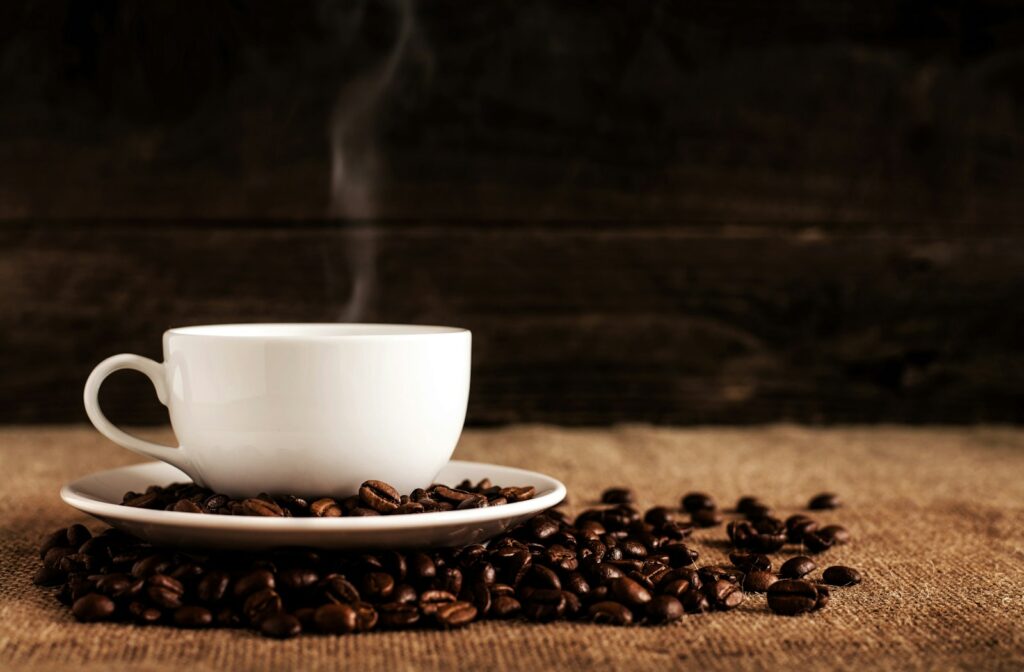
9. **International Delight Iced Coffee – Oreo**Who doesn’t love an Oreo? The iconic cookie’s flavor is undeniably tempting, and when blended into an iced coffee, it sounds like a dream. But before you grab that bottle of International Delight Iced Coffee – Oreo, let’s take a closer look at what you’re truly pouring into your glass. Spoiler alert: it’s a sugar bomb!
A single 15-ounce serving of this sweet concoction contains 220 calories, 5 grams of fat (including 3 grams of saturated fat), and a staggering 36 grams of sugar. To put that into perspective, that’s nearly one and a half times the daily recommended sugar intake by the American Heart Association. It’s an instant rush that comes with a significant nutritional cost.
Michelle Rauch, MSc RDN, a registered dietitian/nutritionist, warns that “while this might be fine as a once-in-a-while treat, frequent consumption of sugar laden beverages is associated with weight gain, obesity, type 2 diabetes, and other issues including, but not limited to cavities and tooth decay.” So, while your taste buds might sing, your long-term health might be humming a different tune.
What’s more, this drink also packs 420 milligrams of sodium, which is “18% of the recommended daily amount of sodium for the general population and 28% for those with conditions such as high blood pressure and kidney disease.” For a healthier alternative, Rauch suggests simply adding “two tablespoons of a flavored creamer to a plain coffee to reduce calories, fat, and sugar in your beverage” rather than opting for these pre-made, high-impact drinks.
Read more about: Unearthing Ancient Powerhouses: The Top 10 Superfoods Revolutionizing Your Plate in 2024
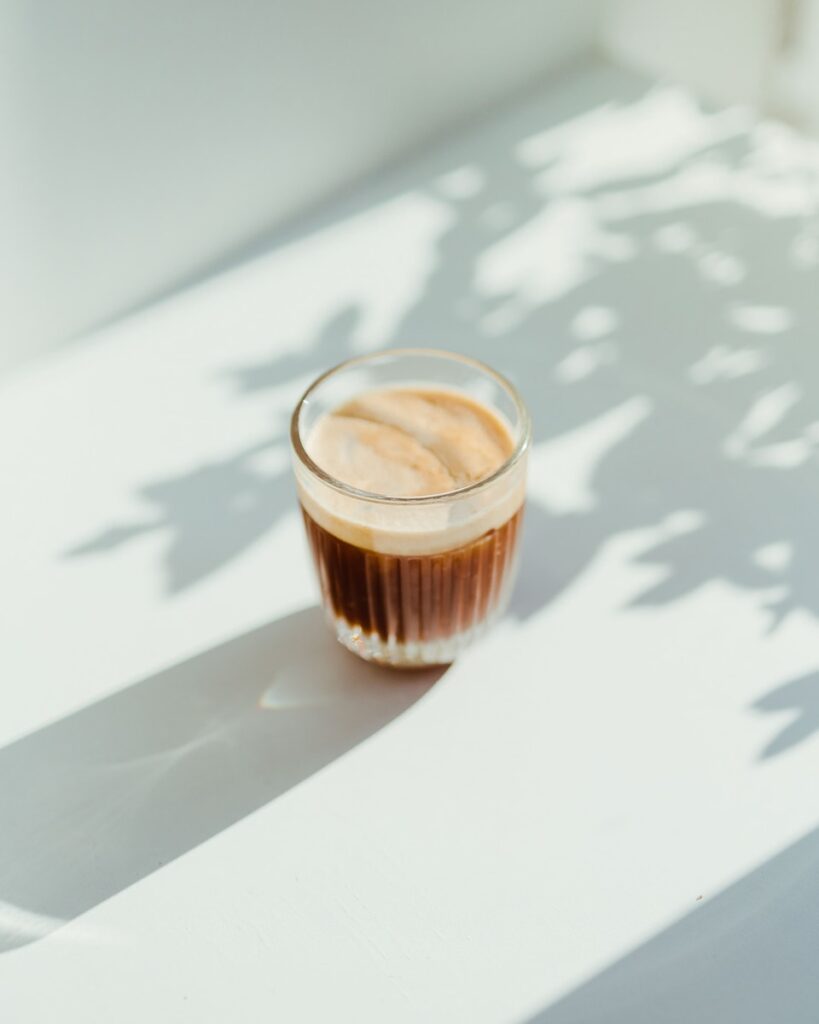
10. **Snickers Iced Coffee Latte**Ah, the irresistible combination of chocolate, caramel, and peanuts, now in a convenient coffee-flavored beverage! The Snickers Iced Coffee Latte promises to deliver that classic candy bar taste in liquid form, and it certainly hits the spot on a hot day. However, much like its solid counterpart, this drink is an indulgence best enjoyed sparingly, if at all, due to its packed sugar and sodium content.
This 13.7-fluid-ounce bottle contains 220 calories, 2.5 grams of fat (with 2 grams saturated), and a hefty 40 grams of sugar. That’s a massive amount of sugar for a single drink, especially when considering the AHA’s daily limit. Nutrition expert Violeta Morris, MS, RDN, points out that “food and beverage companies often reuse the same base formula and simply adjust the flavoring to create different brand-inspired products,” as is the case with the Snickers and Twix Iced Coffee Lattes.
Morris strongly advises either avoiding these drinks entirely or enjoying them only occasionally. Her reasoning is clear: “they are high in added sugars, empty calories, and carbohydrates that offer little nutritional value.” Consuming such beverages regularly means you’re filling up on calories that don’t provide the essential nutrients your body needs to thrive.
Furthermore, with 400 milligrams of sodium per bottle, this drink contributes significantly to your daily sodium intake, which can be a concern for cardiovascular health. While the allure of your favorite candy bar in a cold brew might be strong, understanding its nutritional impact helps make smarter choices for your overall well-being.
Read more about: The Sweet Deception: Unmasking 15 ‘Healthy’ Foods Secretly Loaded with Sugar That Are Wrecking Your Diet
The consistent message from nutrition experts is clear: while an occasional treat is fine, making these rich, flavored lattes a regular part of your routine can lead to an accumulation of excess calories, fats, and sugars. This pattern is often associated with adverse health outcomes like weight gain, elevated cholesterol, and an increased risk of chronic diseases. It truly is a case where delightful taste can mask a significant dietary pitfall.
Phew! What a journey through the often-deceiving world of coffee orders. From those decadent coffee shop concoctions to the sugary grocery store grab-and-gos and even seemingly healthy categories, it’s clear that not all caffeine boosts are created equal. As we’ve seen, many popular choices pack an alarming punch of sugar, fat, and calories, far exceeding daily recommendations and potentially leading to serious health issues like weight gain, type 2 diabetes, and heart disease.
But don’t despair, coffee lovers! This isn’t about ditching your beloved brew; it’s about making informed choices. Experts like Kelly Gray remind us that two to five cups of ‘clean’ coffee daily can be great for your health, potentially lowering the risk of type 2 diabetes and boosting physical performance. The trick is to keep it simple: opt for Americanos, black coffee, or espressos. If you prefer milk, choose skimmed, semi-skimmed, or unsweetened almond milk to avoid hidden sugars and excess fat.
Ultimately, choosing the best coffee for your needs is a personal decision, much like choosing a life partner. A good decision can make your life pleasant, while a wrong choice can make it dreadful. Be mindful of labels, prioritize organic and fresh options where possible, and always consider the ‘Roast Date’ over the ‘Best Before Date’ for freshness. By understanding what’s truly in your cup, you can continue to enjoy coffee as a beneficial and cherished ritual, ensuring your caffeine boost is always a healthy one.


